Industry leaders will serve as presenters on the following course topics:
 Doug Braun-Harvey, MFT, CST, CSTS |
|
Sexual Health in Drug and Alcohol Treatment (6 CE Hours)
Friday, August 16 | 9 am to 4 pm PST
Presenter by: Doug Braun-Harvey, MFT, CST, CSTS
Sexuality, when not directly and positively addressed in recovery, contributes to treatment failure and relapse. Sexual health in recovery outlines pioneering sexual health-based drug and alcohol counseling relapse prevention skills to increase client retention and improve treatment outcomes. Attendees will learn about the “Sexual Health in Recovery Pathway” (SHRP), a comprehensive screening, assessment and treatment intervention process to understand each individual’s sex/drug-linked relapse risk. This session will also examine eight principles – from sex research, addiction treatment, harm-reduction and relapse prevention guiding addiction treatment professionals to contemplate and implement sex/drug-linked relapse prevention programming. The workshop will introduce assessment and a pathway model for counselors to provide sex/drug-linked relapse prevention interventions at all stages of client recovery. The workshop concludes with four core sexual health themes that develop sex-positive drug and alcohol counseling skills, increase counselor willingness and confidence, and clinically organize client sex/drug-linked relapse risk factors within both individual and psycho-educational relapse prevention groups.
At the end of this workshop participants will be able to:
-
-
- Explain sexual health approaches for sex/drug-linked relapse prevention to integrate within current practices within drug and alcohol treatment programs
- Participants will discuss approaches to integrate six fundamentals of sexual health within drug and alcohol treatment programs.
- Describe personal, professional and agency stage of readiness for sexual health in drug and alcohol treatment skills and interventions.
- Explain how sexual health and sexual health principles are allies for improving treatment outcomes.]
- Describe how people merge the ideas of sex addiction and sex and drug linked behavior.
- Demonstrate how to integrate assessment for sex-drug linked behavior at all stages of therapy.
- Demonstrate engaging and effective experiential exercises for clients that can be implemented in drug and alcohol treatment.
-
From Sexual Madness to Sexual Mindfulness: Applying Compassion & Mindfulness to Home & Work
Saturday, August 17 | 9 am to 4 pm PST
Presented by: Jennifer Gunsaullus, Ph.D.
“Everything in our lives has the potential to wake us up or put us to sleep. Allowing it to awaken us, is up to us.” —Pema Chodron
There is much sex-negative and body-negative messaging in our society and many of our clients (as well as many of us practitioners) carry these “sexual madness” messages in ways that negatively determine our self-worth and sexual well-being. These beliefs and emotions are so uncomfortable that we may continually run, numb, distract, or lash out in the face of them, thereby maintaining problematic patterns in intimacy and sex, and sometimes undermining our best intentions with clients.
Mindfulness and self-compassion are powerful tools that can uncover patterns that interfere with intimacy and communication, and then support us in making choices that weren’t previously available. These skills help us awaken to the opportunity for new, healthier, and more heart-centered relationships, sex lives, and professional service.
This training is a combination of a lecture about research and health benefits, experiential activities, personal reflection, and group interactions. Mindfulness is a simple concept, but a lifelong practice in building nuanced awareness and emotional resilience. We’ll be exploring mindfulness and compassion practices together and working on how these can be immediately applied to each participant’s personal and professional life.
Learning objectives:
- Discuss research in mindfulness and compassion and their overall health benefits.
- Explain the basic brain science behind mindfulness.
- Explain how to apply mindfulness skills to positively impact common concerns in sex and relationships.
- Demonstrate ability to stay present with uncomfortable emotions and thoughts, both personally and professionally, and utilize skills in how to move forward in those circumstances.
- Describe skills in specific mindfulness tools and explain how to apply them to sexual and intimate interactions
- Create an outline of problematic clients or personal interactions and identify ways to apply new learnings.
FIND OUT MORE
For questions, contact Rachel Needle, PsyD, co-director of Modern Sex Therapy Institutes, at drrachelneedle@gmail.com, or call 561-379-7207

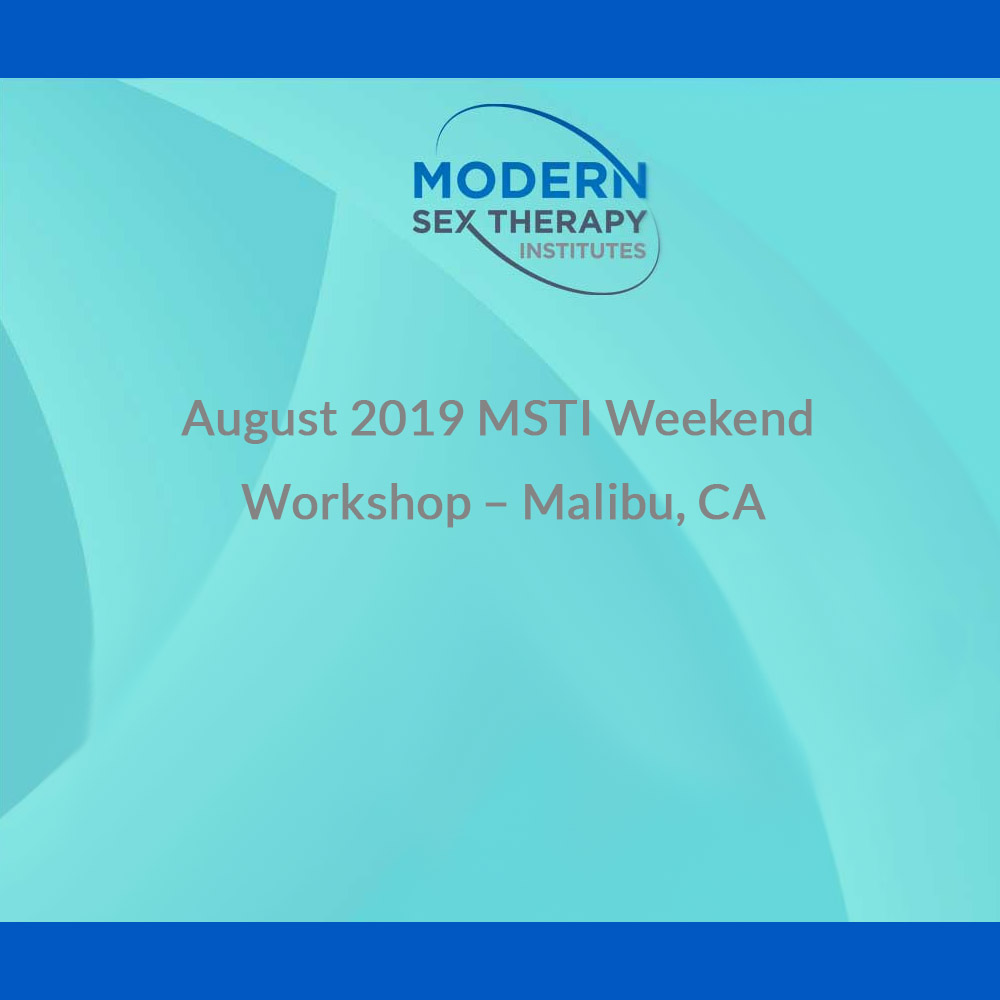
 Jennifer Gunsaullus, Ph.D.
Jennifer Gunsaullus, Ph.D.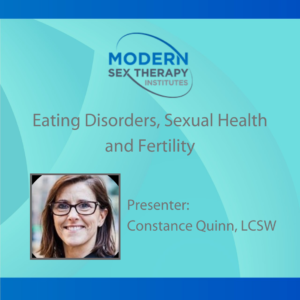
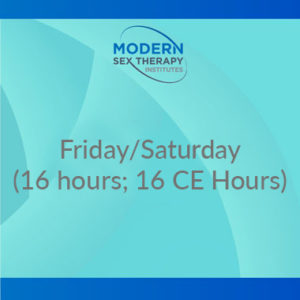
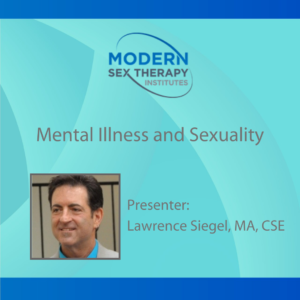
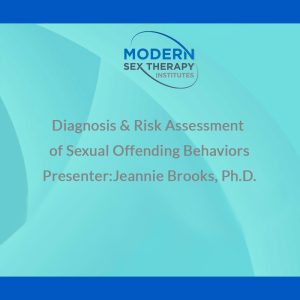

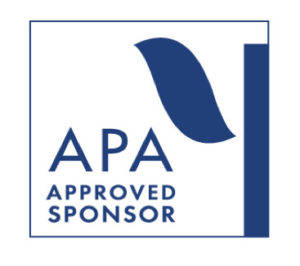 The Advanced Mental Health Training Institute is approved by the American Psychological Association to sponsor continuing education for Psychologists. The Advanced Mental Health Training Institute maintains responsibility for this program and its content.
The Advanced Mental Health Training Institute is approved by the American Psychological Association to sponsor continuing education for Psychologists. The Advanced Mental Health Training Institute maintains responsibility for this program and its content.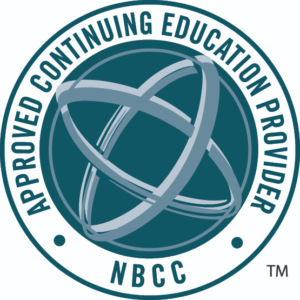 The Advanced Mental Health Training Institute has been approved by NBCC as an Approved Continuing Education Provider, ACEP No.6901. Programs that do not qualify for NBCC credit are clearly identified. The Advanced Mental Health Training Institute is solely responsible for all aspects of the programs.
The Advanced Mental Health Training Institute has been approved by NBCC as an Approved Continuing Education Provider, ACEP No.6901. Programs that do not qualify for NBCC credit are clearly identified. The Advanced Mental Health Training Institute is solely responsible for all aspects of the programs.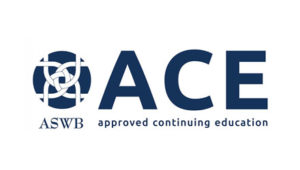 Modern Sex Therapy Institutes [1787, 4/30/22-4/30/25], is approved to offer social work continuing education by the Association of Social Work Boards (ASWB) Approved Continuing Education (ACE) program. Organizations, not individual courses, are approved as ACE providers. State and provincial regulatory boards have the final authority to determine whether an individual course may be accepted for continuing education credit.
Modern Sex Therapy Institutes [1787, 4/30/22-4/30/25], is approved to offer social work continuing education by the Association of Social Work Boards (ASWB) Approved Continuing Education (ACE) program. Organizations, not individual courses, are approved as ACE providers. State and provincial regulatory boards have the final authority to determine whether an individual course may be accepted for continuing education credit.